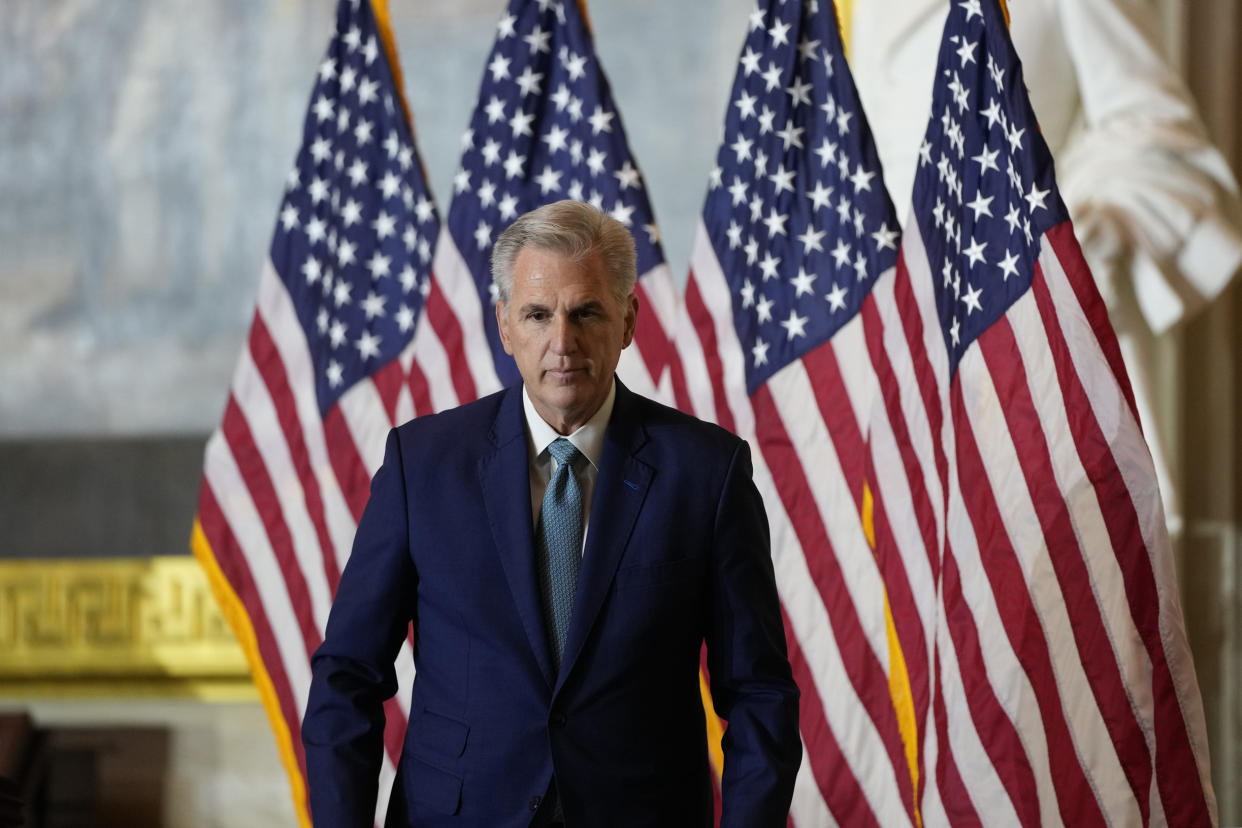Congress struggles to reach funding deal as conservatives push to torpedo it
WASHINGTON — Congressional leaders and the White House are struggling to reach a deal on a massive government funding package, warning that they almost certainly will need to pass a short-term measure to avert a shutdown at the end of the week.
Lawmakers had hoped to wrap up their work in the lame duck session by Friday but are now making plans to stay around right up until the Christmas weekend. Some say they may have to return to Washington the week after that as well, putting at risk family vacations and official congressional delegation trips abroad.
The fate of the bill is also linked to an election overhaul measure to avoid another Jan. 6, which Senate leaders hope to attach to it. Congress must fund the government before Saturday to avoid a shutdown.
“We haven’t reached an agreement, we’re not near an agreement, but the circumstances are there… that we could reach one,” Sen. Richard Shelby, R-Ala., the vice chair of the Appropriations Committee, told NBC News. “Now, will it be before the 23rd? I don’t know that. The time compresses the schedule.”
Democrats and Republicans still have not agreed on top-line spending numbers for an “omnibus” package that will fund the federal government through the fiscal year that ends in September 2023; without those numbers, appropriators cannot finalize the details.
We haven’t reached an agreement, we’re not near an agreement, but the circumstances are there… that we could reach one.Sen. Richard Shelby
The two parties are about $26 billion apart on domestic spending, Shelby said, which isn’t much considering the omnibus package would likely be more than $1.5 trillion. Democrats want parity between domestic and defense spending, but Shelby and other Republicans are pushing to pare back the domestic number because of billions in new spending Democrats passed this Congress in their Covid relief and inflation reduction packages.
“The hangup is that the Democrats got a lot of money, nondefense things, through reconciliation, billions and billions,” said Shelby, who held talks with President Biden last week at the White House. “And now they say they want parity. Well, that’s not parity. We want them to come back to where we can have an agreement.”
Amid the impasse, Senate Democrats on Monday plan to unveil their own funding bill through the fiscal year to try to end the log- jam. Although they control both chambers, they still need at least 10 Senate GOP votes to defeat a filibuster on a funding bill.
“Although we don’t have the Republicans participating, it is designed to attract Republican support and to be a balanced proposal,” said Sen. Brian Schatz, D-Hawaii, who heads an Appropriations subcommittee. “This is not designed to be some sort of gotcha. … This is not going to end up being some wish list of Democratic priorities.”
Schatz said he’d prefer that Congress pass a three-day funding measure, known as a continuing resolution, or CR, to keep the pressure on lawmakers. But it’s more likely a one-week CR will be needed to buy leaders more time to strike a deal.
House Appropriations Committee Chair Rosa DeLauro, D-Conn., sounding frustrated with the pace of talks, said Thursday that it’s been “very, very hard to move forward,” despite her party’s best efforts to address GOP concerns. “When you negotiate, you need to have a partner to negotiate,” she said.
Complicating the GOP internal politics is House Minority Leader Kevin McCarthy, R-Calif., who is courting right-wing votes in his quest to become speaker and is pressuring Senate Minority Leader Mitch McConnell, R-Ky., to walk away from the table until the new Congress in January, when Republicans will take control of the House and wield more negotiating leverage.
“We’re 28 days away from Republicans having the gavel. We would be stronger in every negotiation,” McCarthy said in a Dec. 5 interview on Fox News. “Wait till we’re in charge.”
Democratic appropriators called that scenario a nonstarter.
“That would be disastrous. The president has already indicated that is not an option, so Democrats are gonna deliver. We’re working hard day and night,” said Rep. Barbara Lee, D-Calif., who chairs the Appropriations subcommittee that oversees funding for the State Department and embassies.
The government funding bill is likely the last train leaving the station in the current session of Congress, and a number of other provisions could ride along. Chief among them is a major overhaul of election laws, designed to prevent another Jan. 6 by making it harder for losing presidential candidates to claim victory. Senators have struck a deal on a bill that cleared committee on a bipartisan vote of 14-1 in September.
Asked if the election bill will get a vote on the Senate floor this year, Senate Majority Leader Chuck Schumer, D-N.Y., said: “First job is to get an omnibus.”
Sen. Amy Klobuchar, D-Minn., the Rules Committee chair who helped shape the bill, said Senate leaders are considering tying it to the government funding bill, calling it “the most obvious” vehicle given the time it takes to pass standalone legislation in the chamber. But she insisted it would pass either way.
“We will get this done by the end of the year if I have to slow everything else down,” Klobuchar said in an interview. “It’s going to happen.”
Source: Read Full Article
